#Nutrition Absorption
Text
so the biggest thing in this whole fructose malabsorption thing I've been diagnosed with and trying to figure out is the fructose to glucose ratio in foods. apparently, when glucose is consumed at the same time as fructose, it increases fructose absorption. so total fructose content, while important, isn't as important as making sure more glucose is consumed than fructose.
which means.
that fucking BRUSSELS sprouts, the vegetable notorious for being bitter and gross, are on the list of things I have to be careful with, bc while they have negligible sugar, that sugar very slightly is more fructose than glucose.
#why does glucose aid in fructose absorption? fuck if I know#I don't know about nutrition really#I got a C in biochem#my biology degree focused on environmental biology and microbiology#I don't know shit my guy#I'm operating off the organic chem courses I took years ago and they aren't as much help as I'd like#anyways now that I've recovered from being sick I'm back to food diary stuff#bc the general gist of everything I've been told is#''well there's broad rules but everyone is different so you're on your own to find out what you can do good luck''#uuuuuuuuuuugggggggggggghhhhhhhh#speechie sucks at health#speecher speaks
2 notes
·
View notes
Text
#tiktokparrot#african grey#african grey lifespan#african grey parrot care#african grey behavior#buying an african grey parrot#africangrey#african grey parrot lifespan in captivity#african grey parrot#cute birds#African Grey beak health#African Grey calcium absorption#African Grey calcium deficiency symptoms#african grey care#African Grey diet#african grey enrichment#african grey foraging toys#African Grey happiness#african grey health issues#african grey Intelligence#African grey lifespan#African Grey nervous system health#african grey Nutrition#African Grey Parrot#african grey parrot website#African Grey pellets#African Grey picky eater#African Grey sunlight exposure#african grey website#avian health
0 notes
Text
Maximize Your Health with the *Ultimate Vitamin and Food Guide
The Ultimate Vitamin Guide: Maximizing Health with Nature’s Building Blocks
The Ultimate Vitamin Guide:
In today’s wellness-focused world, prioritizing health is crucial. Understanding the fundamental building blocks of nutrition—vitamins—is essential for optimal health. These vital nutrients play diverse roles, from boosting the immune system and enhancing skin health to improving mental…

View On WordPress
#antioxidant benefits#bone health#dietary supplements#energy metabolism#essential vitamins#health and nutrition#health maximization#healthy living#holistic wellness#immune system boost#natural health#natural supplements#nutrient-rich diet#nutritional building blocks#nutritional guide#skin health vitamins#vitamin absorption#vitamin benefits#vitamin combinations#vitamin deficiency#vitamin guide#vitamin sources#vitamin-rich foods#wellness optimization
0 notes
Text
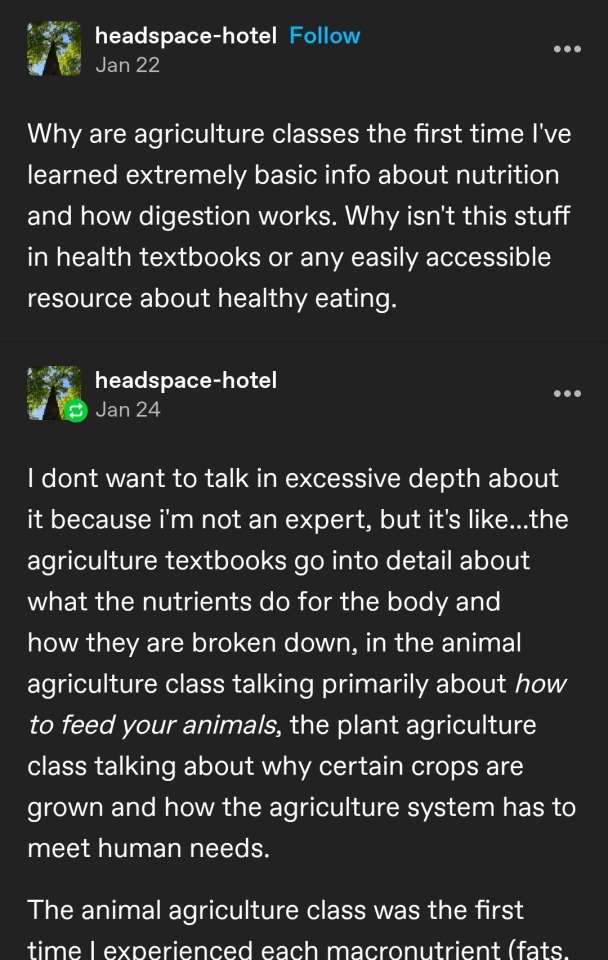
I dont want to reblog this post because its like 3km long but it's filled with so many half truths and inaccurate conclusions its crazy 🙏 first red flag for anyone reading it is that it's written by someone who is taking an animal agriculture class and extrapolating information they learned about cows and pigs to human biology lmao
#*for disclosure i have a health & medical science degree#a related masters degree and am a registered health professional#and OP made a whole post abput the GI system and nutrition and doesnt even know the difference between digestion and absorption of food#no point to this post except ranting cus i hate ppl spreading health misinformation
1 note
·
View note
Text
It's also been suggested that glyphosate can lead to more plant disease, because its use 'reduces the overall growth and vigor of the plants, modifying soil microflora that affects the availability of nutrients required for disease resistance'.
"Soil: The incredible story of what keeps the earth, and us, healthy" - Matthew Evans
#book quotes#soil#matthew evans#nonfiction#glyphosate#roundup#herbicides#plant disease#plants#disease#vigor#soil biota#microflora#nutrition#nutrients#nutrient absorption
0 notes
Text
Optimizing Agriculture: Liquid Zinc Oxide 39.5% SC for Enhanced Crop Growth.
The “Liquid formulation with Zinc oxide 39.5% SC ” is an innovative agricultural solution that provides several benefits. It requires a low dosage, enhances zinc nutrition, and is rapidly absorbed through nanoparticles. It is also compatible with agrochemicals and promotes nitrogen metabolism, which leads to improved protein and starch production. Additionally, it supports chloroplast and enzyme enhancement, contributing to overall plant health and vitality.
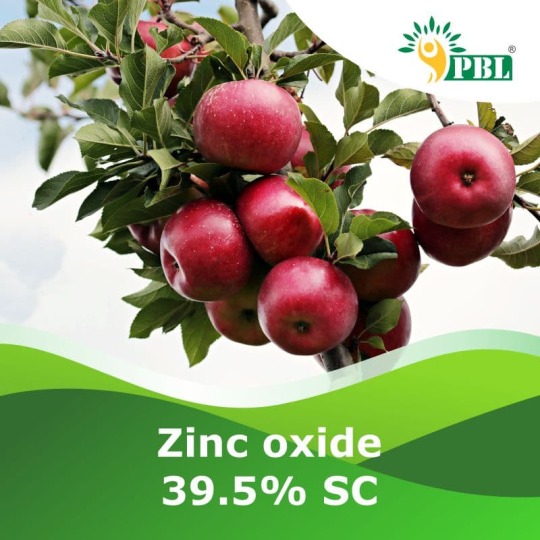
#Liquid Zinc Oxide 39.5% SC#agriculture#crop growth#zinc nutrition#rapid absorption#agrochemical compatibility#nitrogen metabolism#protein production#starch production#chloroplast#enzyme levels
0 notes
Text
The Marvelous Avocado
Avocados, with their buttery texture, rich flavor, and incredible health benefits, have captured the hearts and taste buds of people around the world. Beloved for their versatility and nutritional value, avocados have become a staple ingredient in many dishes and a symbol of healthy eating. In this comprehensive guide, we delve into the world of avocados, exploring their origins, nutritional…

View On WordPress
#and B-6#Antioxidants#folate#Lauraceae#Nutrient Absorption#Nutritional Powerhouse#Preserving Avocados#Ripening Avocados#Storing Avocados#vitamin B6#vitamin E#vitamin k#vitamins K
0 notes
Text
After the roots absorb iron cations or an iron chelate, they oxidize it to a ferric form and translocate much of it to the leaves as an electrostatic complex with citrate or nicotianamine.
"Plant Physiology and Development" int'l 6e - Taiz, L., Zeiger, E., Møller, I.M., Murphy, A.
#book quote#plant physiology and development#nonfiction#textbook#cations#iron#plant nutrition#chelation#iron chelate#oxidation#ferric iron#translocation#leaves#electrostatics#citrate#nicotianamine#nutrient absorption
0 notes
Text
the nutrition

#Nutrition is the process of consumption#absorption and utilization of the nutrients necessary for the growth and development of the organism and for the maintenance of life.#nutrition is important to prevent disease and obesity#There are three types of nutrition: herbivore#carnivore and omivore.#all human beings must have good nutrition
0 notes
Link
#ways to improve your child's nutrient absorption#tips to improve nutrient absorption#nutrients#nutrition#kids nutrition#parenting#parenting ideas#parenting tips#children#kids diet#kids food#healthy food#healthy#health#good health#kids health#digestion#food#good life#good vibes#momsqna
0 notes
Text
Supplements & Vitamins
Here's a list of some of the most commonly used supplements and their benefits. Please remember that while supplements can be beneficial for certain people, everyones nutritional needs are different. It's always a good idea to consult with a specialist before adding any new supplements to your routine, as individual needs may vary.
Multivitamin: Provides a range of essential vitamins and minerals to support overall health and fill potential nutrient gaps in your diet.
Omega-3 Fatty Acids: Promote heart health, brain function, and reduce inflammation. Typically derived from fish oil or algae.
Vitamin D: Supports bone health, immune function, and may have a positive impact on mood. It's commonly obtained through sun exposure, but supplements can be useful, especially in winter or for those with limited sun exposure.
Probiotics: Help promote a healthy gut microbiome, aiding digestion, nutrient absorption, and immune function.
Magnesium: Important for muscle and nerve function, bone health, and energy production. It may also help with relaxation and sleep.
B vitamins: Help convert food into energy, support brain function, and maintain healthy hair, skin, and nails.
Vitamin C: Boosts immune function, acts as an antioxidant, supports collagen production, and aids in iron absorption.
Zinc: Essential for immune function, wound healing, and cell division. It also supports normal growth and development during pregnancy, childhood, and adolescence.
Iron: Required for red blood cell production and oxygen transport. Iron deficiency can lead to anemia and fatigue, but it's essential to get iron levels checked before supplementing.
Calcium: Crucial for bone health and muscle function. It's often combined with vitamin D for better absorption.
Coenzyme Q10 (CoQ10): Plays a vital role in energy production within cells and acts as an antioxidant. It may benefit heart health and cellular energy metabolism.
Curcumin (Turmeric extract): Possesses anti-inflammatory and antioxidant properties, potentially supporting joint health and cognitive function.
Ashwagandha: An adaptogenic herb that may help reduce stress, promote relaxation, and support cognitive function.
Green Tea Extract: Contains antioxidants and may support cardiovascular health, weight management, and cognitive function.
Glucosamine: Commonly used for joint health and may help alleviate symptoms of osteoarthritis.
Chondroitin: Often taken alongside glucosamine, it may help reduce joint pain and improve joint mobility.
Probiotics for Gut Health: Certain strains of probiotics can help restore and maintain a healthy balance of gut bacteria, supporting digestion and immune function.
Melatonin: A hormone that regulates sleep-wake cycles, melatonin supplements can help with insomnia or jet lag.
Vitamin E: An antioxidant that supports immune function and may help protect against cellular damage.
Ginseng: An adaptogenic herb that may help increase energy, reduce stress, and support cognitive function.
Prebiotics: These are non-digestible fibers that promote the growth of beneficial gut bacteria, supporting gut health and digestion.
Magnesium: In addition to its previous benefits, magnesium may help reduce muscle cramps, improve mood, and promote relaxation.
Probiotics for Vaginal Health: Certain strains of probiotics can help maintain a healthy balance of vaginal flora, reducing the risk of infections.
Cranberry Extract: Often used for urinary tract health, cranberry extract may help prevent urinary tract infections.
Resveratrol: Found in grapes and berries, resveratrol has antioxidant properties and may support heart health and longevity.
L-theanine: An amino acid commonly found in green tea, L-theanine may promote relaxation, improve focus, and reduce anxiety.
#vitamins#supplements#health tips#healthy diet#health is wealth#healthy living#health and wellness#healthy lifestyle#health#clean girl#glow up tips#level up journey#wellness
3K notes
·
View notes
Text
Maximize Your Health with the *Ultimate Vitamin and Food Guide
The Ultimate Vitamin Guide: Maximizing Health with Nature’s Building Blocks
In a world where health is increasingly becoming a priority, understanding the building blocks of nutrition is essential. Vitamins, those organic compounds crucial for our survival, play various roles from bolstering the immune system to enhancing skin health. Let’s delve into the specifics of each vitamin, their unique…

View On WordPress
#antioxidant benefits#bone health#dietary supplements#energy metabolism#essential vitamins#health and nutrition#health maximization#healthy living#holistic wellness#immune system boost#natural health#natural supplements#nutrient-rich diet#nutritional building blocks#nutritional guide#skin health vitamins#vitamin absorption#vitamin benefits#vitamin combinations#vitamin deficiency#vitamin guide#vitamin sources#vitamin-rich foods#wellness optimization
0 notes
Text
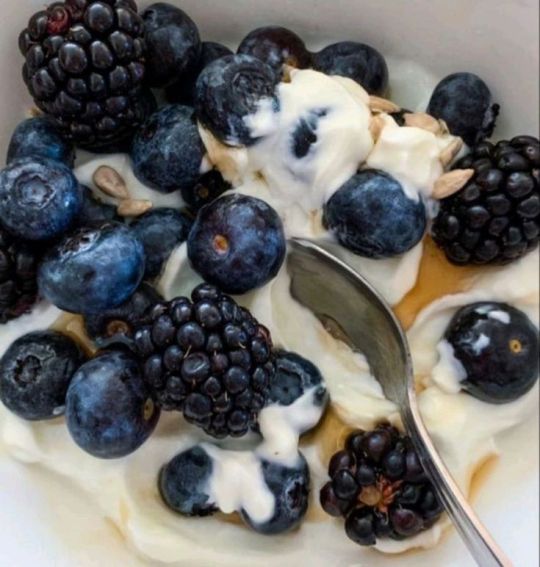
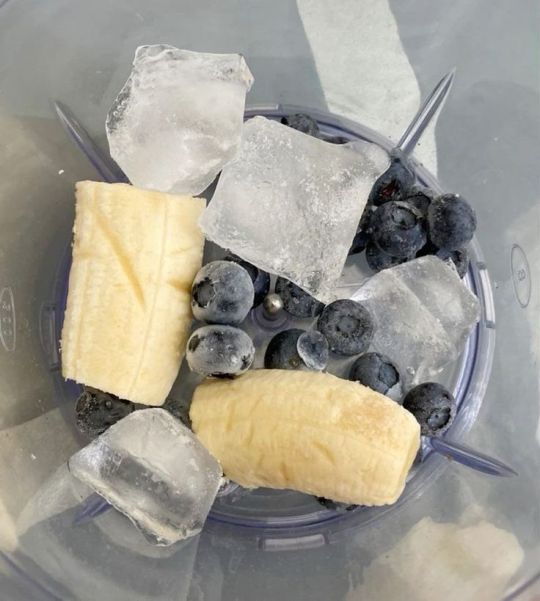
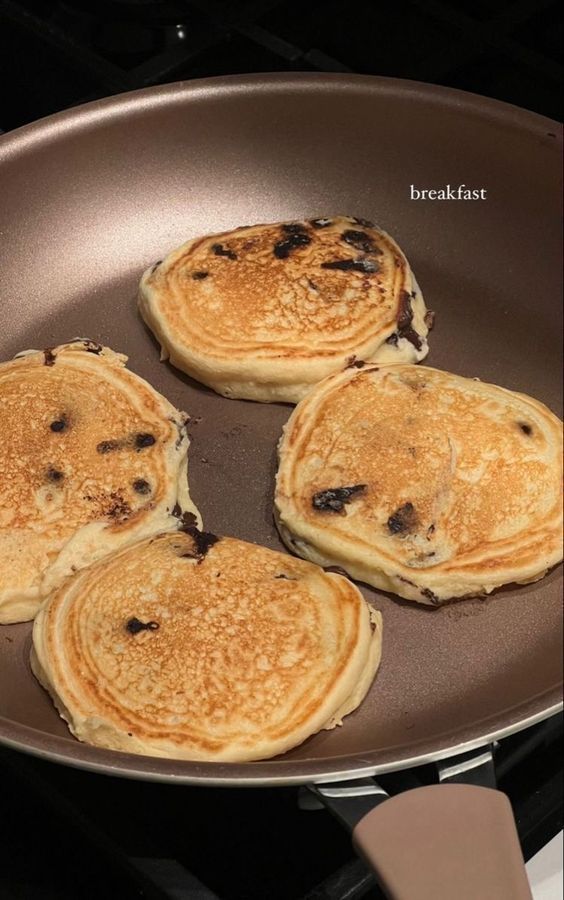
the effect of what (and how) you eat
okay, this is a big topic. and so this is a long post. i'm going to be going over the effect of what you eat and why it's important to think about what foods you are consuming. don't worry! i do my research-- at the end of the post will be a few resources, and i'll show where i've gotten my information.
lots of dietary advice is available over the internet, but often the people absorbing the information do not understand the why. knowing where your information is coming from,, and not believing everything you read online is key to actually maintaining a good, healthy diet.
before you read: TRIGGER WARNING THERE IS MENTION OF EATING DISORDERS,,
let's start with this: like everything in this age, food is a double-edged sword. overconsumption and underconsumption can both kill you. what you eat; how you eat--it can help or hinder whatever your goals may be.
here's the effect/s: the connection between diet and mental health is profound. while we’ve long understood that diet plays a crucial role in overall health, emerging research in the field of nutritional psychiatry sheds light on how what we eat directly impacts our emotional well-being and mental state.
the brain-gut connection: the gut is closely linked to the brain. trillions of living microbes in our gut have essential functions, including synthesizing neurotransmitters. these neurotransmitters send chemical messages to the brain, regulating sleep, pain, appetite, mood, and emotions.
to improve your gut health, here's what you can do:
by eating a varied diet that includes fruits, vegetables, whole grains, nuts and seeds, essential nutrients are provided which feeds the beneficial bacteria in the gut. high fibre foods promote gut health by supporting good bacteria.
fermented foods, such as yogurt, kefir, sauerkraut, kimchi, and miso are rich in probiotics—live beneficial bacteria that boost gut health. kombucha (a fermented tea) is another option.
avoiding reducing processed foods can reduce the diversity of good bacteria in your gut. when i say processed foods, i'm referring to ultra-processed foods, for example, fried foods and frozen meals. they may be easy and cheap, but they include preservatives, artificial colouring, chemical flavouring and texturing agents. all of which our bodies are not made to consume.
it's ignorant to tell you to avoid processed foods at all costs. that's not realistic, and a horrible mindset. instead, you should manage your intake. enjoy treats every now and then and don't punish yourself for it.
hydration is key to a healthy gut. water supports digestion and nutrient absorption.
stress management, eating well and exercise can also help your gut microbiome's health.
by having a healthy gut microbiome, you are helping your body to have lower chronic inflammation, have regular bowel movements and more effectively absorb nutrients. therefore, you will have a stronger immune system, have clearer skin and support your digestion and metabolism.
why eating protein matters: proteins are made of amino acids, which serve as the fundamental building blocks for various structures in our bodies. these amino acids are essential for forming enzymes, hormones, tissues, and DNA. protein is vital in maintaining and building muscle mass. when activities like strength training and physical exercise are engaged in, protein helps build and repair the muscles.
hemoglobin, a protein in our red blood cells, transports oxygen from our lungs to other tissues. without adequate protein, oxygen delivery would be compromised. antibodies, which defend against infections, are made of proteins. a well-functioning immune system relies on sufficient protein intake. collagen, a protein, maintains the integrity of our skin, hair, and nails. adequate protein supports healthy skin elasticity and wound healing.
the recommended dietary intake for protein relies on factors such as age, weight, height, gender, activity and overall health. remember that individual needs can vary, so consulting with a healthcare provider or registered dietitian is advisable to determine your specific protein requirements.
many diets exist that cut out entire macronutrients (keto for example) but that is not the way. each macronutrient has great importance in helping the body function.
carbohydrates are the body's (including the brain) preferred energy source. they enable muscle contraction during exercise and even at rest. carbs maintain body temperature, support heart function, and aid digestion.
the keto diet comes from the belief that when carbohydrates are not providing energy (are not being consumed), the body will use reserved energy stored in lipids (fat). while this is true, this diet is not maintainable-- it throws the body out of whack, storing more energy to maintain homeostasis.
fats provide energy and are essential for hormone production. they contribute to cell growth, brain health and vitamin absorption.
our brain is composed of ~60% fat. fats are essential for neurotransmitter production, affecting mood, cognition, and hormonal signalling. cholesterol, often associated with heart health, is a precursor for steroid hormones (testosterone, estrogen, progesterone). without adequate cholesterol, our body cannot produce these essential hormones.
effects of diet on mood: firstly, going long periods without eating can cause a drop in blood sugar levels, leading to tiredness and irritability. secondly, consuming excessive amounts of food can make you feel tired and lethargic.
choosing the right carbohydrates can help maintain blood sugar levels. our brain primarily runs on glucose (obtained from carbohydrate-rich foods). you can opt for slow-release carbohydrates to maintain steady energy levels. slow-release carbohydrates (a.k.a low GI food) provide a more sustained and gradual release of energy compared to other carbohydrates. examples include fruits, vegetables, whole grains (grainy bread, brown rice, oats) and sweet potatoes. high GI foods rapidly spike blood sugar levels due to their quick digestion and absorption.
going too long without eating can lead to low blood sugar levels, resulting in irritability and fatigue. overeating to discomfort can also leave you feeling tired and lethargic. consistent, moderate-sized meals help maintain stable blood sugar levels and promote an even mood.
i know, overeating is an issue that one cannot simply 'turn off'. it's important to know the psychology, and if you struggle with it--please talk to a health professional.
here is what i can tell you about overeating:
overeating is typically a learned behaviour and habit. certain foods are associated with pleasure and reward. when enticing food is encountered, we engage in eating behaviour and immediately experience pleasure. this reinforces the habit, making it challenging to change.
overeating may be serving as a coping mechanism for emotions. when feelings of sadness, disappointment, frustration, or even joy arise, someone may turn to food. emotional eating provides temporary relief, reinforcing the behaviour.
the first delicious bite triggers pleasure, satiates our appetite, and improves our emotional state. our memory associates this reward process with eating, leading us to continually seek that pleasure. this is due to immediate reward.
people with eating disorders may disregard their health, body, body image and lifestyle goals. they use food as a way to punish themselves and gain control over their life. restrictive eating disorders can lead to 'binging behaviour'. bingeing serves as a way to numb emotions. anxiety, stress, and depression can trigger binge behaviours. consuming certain foods or substances (like junk food or alcohol) releases dopamine, the “feel-good” neurotransmitter. this chemical rush can lead to physical addiction, reinforcing bingeing. a culture (unfortunately which is abundant in the world today) that emphasizes consumption as a measure of worth can contribute to bingeing. messages about thinness, drinking, and material possessions can drive these behaviours.
i hate that i am having to say this but alcoholism is bad. and caffeine addiction is bad. in no way is harming your health aesthetic or 'a vibe'.
limiting caffeine and alcohol can also improve mood. again, i'd like to stress that there is never going to be one perfect diet, and allowing yourself to enjoy whatever food you like is perfectly fine- as long as you are doing so in moderation.
everything is a balance.
resources/further reading, to end:
Fat Requirements For Optimal Hormonal Health - Clean HealthHow Dietary Fat Benefits Hormones - Women's International Pharmacy (womensinternational.com)
The truth about fats: the good, the bad, and the in-between - Harvard HealthDietary fats | healthdirectMacronutrients: Definition, importance, and food sources (medicalnewstoday.com)Know Your Macros-Why Macronutrients Are Key to Healthy Eating | Cedars-SinaiWhy the Proper Balance of Macronutrients is Vital for Good Health - Functional Diagnostic Nutrition
What Is Protein & Why Do You Need It? (eatingwell.com)Protein: Why Your Body Needs It (webmd.com)Protein | The Nutrition Source | Harvard T.H. Chan School of Public HealthBinge-Eating Disorder (Compulsive Overeating) | Psychology Today AustraliaThe Psychology Behind Binge-Watching | PsychregBingeing: Why It Happens and What You Can Do About It (greatist.com)
Understanding Overeating: The Psychology Behind It - Listen-HardWhy stress causes people to overeat - Harvard HealthThe Truth About Overeating | Psychology TodaySlow-release carbs list (medicalnewstoday.com)Why understanding carbs (and how to count them) matters | Diabetes UK
Food and your mood - Better Health ChannelHow food can affect your mood | Nutrition AustraliaStress-related stomach pain: When to see a doctor - UChicago MedicineWhat Is Gut Health? A Comprehensive Guide to Digestive Wellness | U.S. News (usnews.com)Why Gut Health Matters More Than You Think | Well.Org
Probiotics: What They Are, Benefits & Side Effects (clevelandclinic.org)Probiotics: What You Need To Know | NCCIH (nih.gov)What should I eat for a healthy gut? - BBC FoodLet’s Eat: How Diet Influences the Brain (brainfacts.org)
i know the fact that the resources are one big block may be annoying, but i don't have the commitment to in text reference lmao. hours of research and writing for a blog post, yes, but in text referencing is just too far.
i hope you learnt something
❤️joanne
#elonomh#elonomhblog#student#student life#academia#chaotic academia#productivity#study blog#that girl#becoming that girl#sports science#anatomy#health science#health and wellness#healthy life#healthy lifestyle#wellness and health#mental health#health & fitness#healthylifestyle#health tips#wellness aesthetic#wellness girl#wellness moodboard#wellness#wellbeing#healthy living#vitamins
96 notes
·
View notes
Text
In the heart of a bustling metropolis, inside a state-of-the-art laboratory, Dr. Marcus Everson was on the brink of a groundbreaking discovery. Known for his sharp intellect and striking looks, Marcus dedicated his career to addressing one of humanity's greatest challenges: world hunger.
His latest invention was a potion, shimmering with a promising azure glow, designed to maximize nutritional absorption. The idea was simple yet revolutionary: a few drops could turn a minimal meal into a day's worth of sustenance. The implications for solving global hunger were immense.

Despite the risks, Marcus decided to test the potion on himself. He believed in leading by example, and what better way to demonstrate his confidence in the potion's safety and efficacy? With a steady hand, he administered a small dose, expecting little more than a mild sensation or perhaps a fleeting energy boost.
At first, nothing happened. Marcus felt a flicker of disappointment mixed with relief. He began to make notes, meticulously documenting his initial observations. Minutes ticked by in the quiet hum of his lab.

Then, it started.
A peculiar feeling washed over him, a deep, internal stirring unlike anything he had experienced before. He glanced down, noticing a subtle change in his normally flat abdomen. It was expanding, slowly but perceptibly. Marcus's eyes widened in astonishment. He rushed to the mirror, watching in disbelief as his slim frame began to swell.



Panic set in. He scrambled through his notes, trying to identify a miscalculation or a misstep in his process. But there was nothing, no immediate explanation for this extraordinary reaction.
His body continued to grow, his once lean physique inflating rapidly. The man who had always prided himself on his appearance, who had never struggled with a pound too many, was now ballooning beyond his wildest imagination.

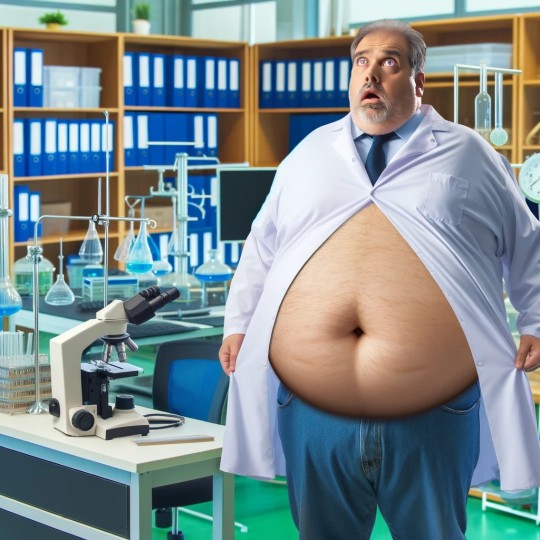
As he surpassed what one might call overweight, then obese, and approached a size that could only be described as morbidly obese, Marcus's mind raced with scientific curiosity and personal horror. The laboratory, once a sanctuary of control and precision, felt like a chamber of unpredictable chaos.
He knew he needed help, but his pride, his reputation as a brilliant scientist, held him back. How could he face the world in this state? How could he explain that his ambition to solve world hunger had led to this bizarre personal catastrophe?
The story ends with Marcus, once a paragon of health and attractiveness, now a man of immense size, alone in his laboratory. The potion that was meant to change the world had indeed changed something - but it was not what he had intended. His journey, marked by a quest for scientific achievement, had taken a turn into the unknown, leaving him in a state of shock and disbelief at his own transformation.
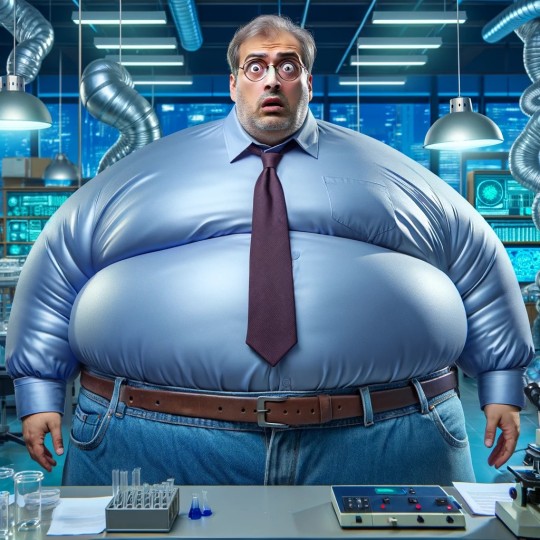
#ai image#ai#ai generated#bellyinflation#mpreg#mpreg belly#mpreg kink#bodybuilder#body expansion#body inflation#fat belly#fat#fatty
93 notes
·
View notes
Text
Optimizing Agriculture: Liquid Zinc Oxide 39.5% SC for Enhanced Crop Growth.
The "Liquid formulation with Zinc oxide 39.5% SC" is an innovative agricultural solution that provides several benefits. It requires a low dosage, enhances zinc nutrition, and is rapidly absorbed through nanoparticles. It is also compatible with agrochemicals and promotes nitrogen metabolism, which leads to improved protein and starch production. Additionally, it supports chloroplast and enzyme enhancement, contributing to overall plant health and vitality.
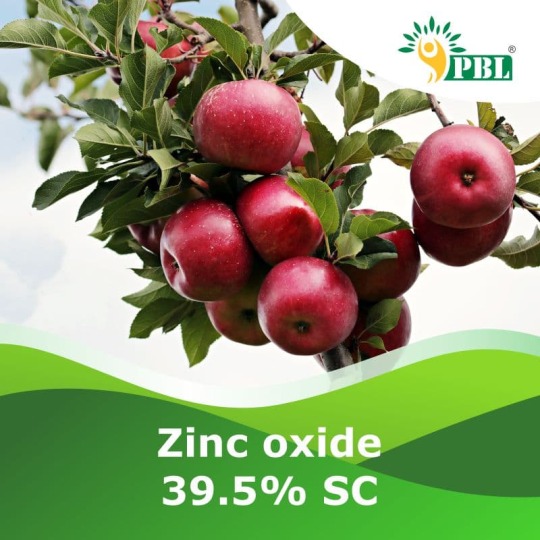
#Liquid Zinc Oxide 39.5% SC#agriculture#crop growth#zinc nutrition#rapid absorption#agrochemical compatibility#nitrogen metabolism#protein production#starch production#chloroplast#enzyme levels
0 notes
Text
HONEYS GUIDE TO NUTRITION* ˗ˏˋ༻
this is going to serve as general information about nutrition so that u guys can build good diets and healthy eating habits <3
FIBER-RICH FOODS : apples, avocados, raspberries, carrots, broccoli, quinoa, bananas, oats, lentils, black beans, almonds, strawberries, chickpeas, popcorn, brussel sprouts, blueberries

PROTEIN-RICH FOODS : tuna, chicken, peanut butter, beans, eggs, turkey, edamame beans, pistachios, cheese, milk, quinoa, beef, pork, salmon, chickpeas, almonds, seeds, yogurt, tofu, peas
GENERAL NUTRTIONAL INFORMATION : carbs = energized, protein = satisfaction, fiber = full, fats = stable energy levels, cravings = happiness (make sure to get a balance of all five 💗)
HEALTHY GUT : eating fermented foods increases the good bacteria in ur gut. kimchi, sauerkraut, kefir, miso, garlic, asparagus, leeks, bananas and avocado.
ALL ABOUT TEA : numerous studies have shown that drinking a variety of teas boosts ur immune system, and fights off inflammation.
SUPPLEMENTS AND VITAMINS : omega threes promote heart health, brain function, and reduces inflammation. vitamin D increases the absorption of calcium and magnesium which supports immune function and bone health (most commonly obtained with sunlight) zinc is good for wound healing, collagen is good for hair skin and nails, vitamin E is a powerful antioxidant that helps repair cellular damage
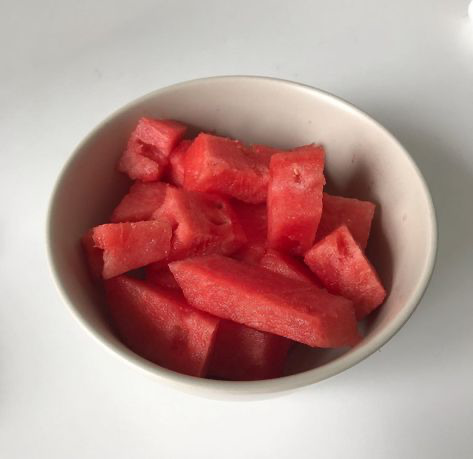
#self care#it girl#becoming that girl#that girl#it girl energy#dream girl#nutrition#lifestyle#healthy#healthy lifestyle
147 notes
·
View notes